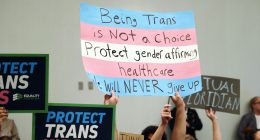
The glitch means that families end up paying higher and less affordable premiums for the job-based health insurance — or skipping coverage altogether.
About 90 percent of people affected by the glitch are buying coverage deemed unaffordable, according to the Urban Institute’s analysis. In other words, while most people affected by the glitch enroll in coverage rather than going uninsured, “they’re paying through the nose,” Ms. Keith said.
If the glitch is fixed, the cost of job-based coverage would need to be considered affordable for the entire family. If the coverage wasn’t affordable, the rest of the family — other than the covered employee — would then qualify to shop on the exchanges, using tax credits to reduce their premiums.
The fix isn’t perfect, says Cynthia Cox, director of Kaiser’s Program on the Affordable Care Act. If the workplace plan is affordable for the employee — say, the mother in the family — she would need to enroll in that plan, while her spouse and children sought lower-cost marketplace coverage. That would mean paying two separate premiums and meeting two deductibles, which might not be more affordable, and perhaps navigating two provider networks.
That’s partly why, although an estimated five million people are affected by the glitch, far fewer would probably take advantage of the newly available tax credits. The Urban Institute estimated that 710,000 more people would enroll in marketplace coverage with tax credits. Another 90,000 — mainly children — would enroll in coverage through government plans like Medicaid and the Children’s Health Insurance Program because the Obamacare marketplace automatically checks eligibility for those options.
The Biden administration estimates that 200,000 uninsured people will gain health coverage, and nearly one million will have more affordable coverage under its proposed fix.
The proposal comes as expanded health insurance subsidies, offered to Americans during the Covid-19 pandemic, are set to expire. The pandemic relief, which made it temporarily easier for people to get affordable coverage on the government marketplaces, was approved through 2022. To extend the help or make it permanent, Congress must act. If the extra help is continued, fixing the family glitch would result in even greater savings for families, according to an analysis by Third Way.
Source: | This article originally belongs to Nytimes.com









